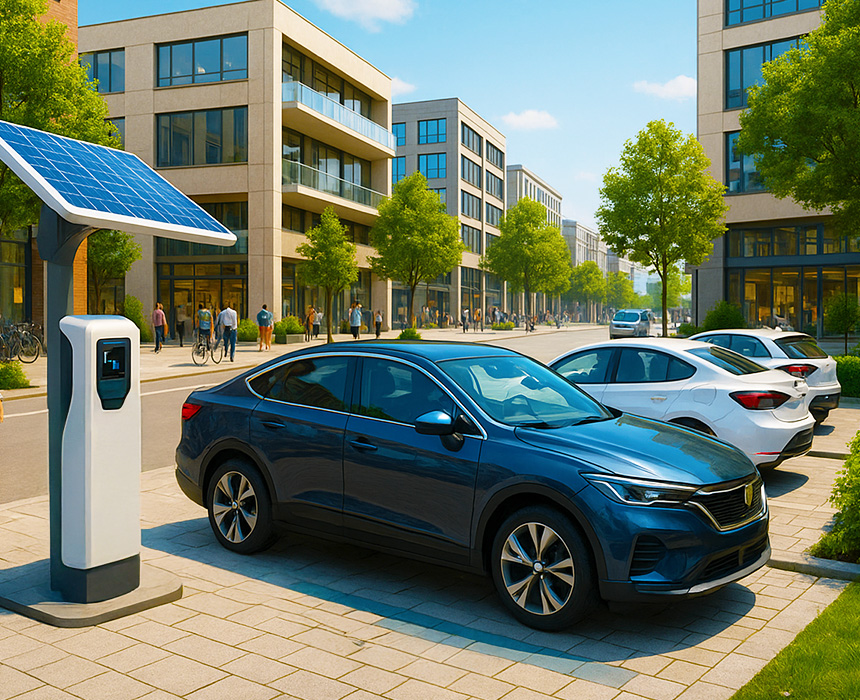Integration of Electric Vehicles into Urban Life
The widespread adoption of electric vehicles (EVs) is transforming urban life in multiple dimensions. This transformation goes beyond environmental benefits, reshaping transportation systems, energy infrastructures, cultural values, and social habits in ways that signal a paradigm shift for modern cities.
Impact on Mobility and Transport
The dominance of fossil-fuel vehicles has long contributed to congestion, pollution, and noise in cities. The rise of EVs offers a sustainable alternative, enabling cleaner and smarter mobility. Public transport electrification, taxi fleet conversion, and the growth of micromobility solutions such as e-scooters and e-bikes reduce private car ownership and reshape traffic flows. Urban planners are now designing corridors and networks where EVs and charging infrastructure become integral parts of city mobility.
Infrastructure and Energy Management
Integrating EVs requires modernizing urban infrastructure. Properly placed charging stations, upgraded power grids, and renewable energy integration are essential. Solar- and wind-powered charging points reduce carbon footprints, while smart grids monitor and balance energy demand in real time. This ensures that cities can accommodate growing EV usage without overburdening the electrical network.
Environmental and Health Benefits
EVs eliminate tailpipe emissions, leading directly to cleaner air in cities. Reduced nitrogen oxides and particulates improve respiratory health, while lower noise pollution enhances mental well-being. The smoother, quieter operation of EVs also makes urban environments more pleasant for both drivers and pedestrians.
Social and Cultural Transformation
EV ownership has become a symbol of eco-conscious living. For younger generations, it represents not just a vehicle choice but also a lifestyle and social responsibility. The rise of car-sharing platforms is shifting culture from ownership to access, strengthening the sharing economy. This cultural shift reflects broader values of sustainability and community engagement.
Education, Policy, and Future Outlook
Public policies and education are key to accelerating EV integration. Municipalities and universities develop specialized training programs to build a workforce skilled in EV maintenance and management. Governments support adoption through subsidies, tax incentives, and parking privileges. Looking ahead, autonomous EVs will require wireless charging systems, AI-driven traffic optimization, and dynamic fleet management to fully integrate into urban ecosystems.
Conclusion
Integrating EVs into urban life is a multifaceted transformation. By influencing mobility, infrastructure, environment, and culture, EVs are reshaping the fabric of cities. This is not merely a technological shift but a social revolution that promises cleaner, smarter, and more sustainable urban futures.




